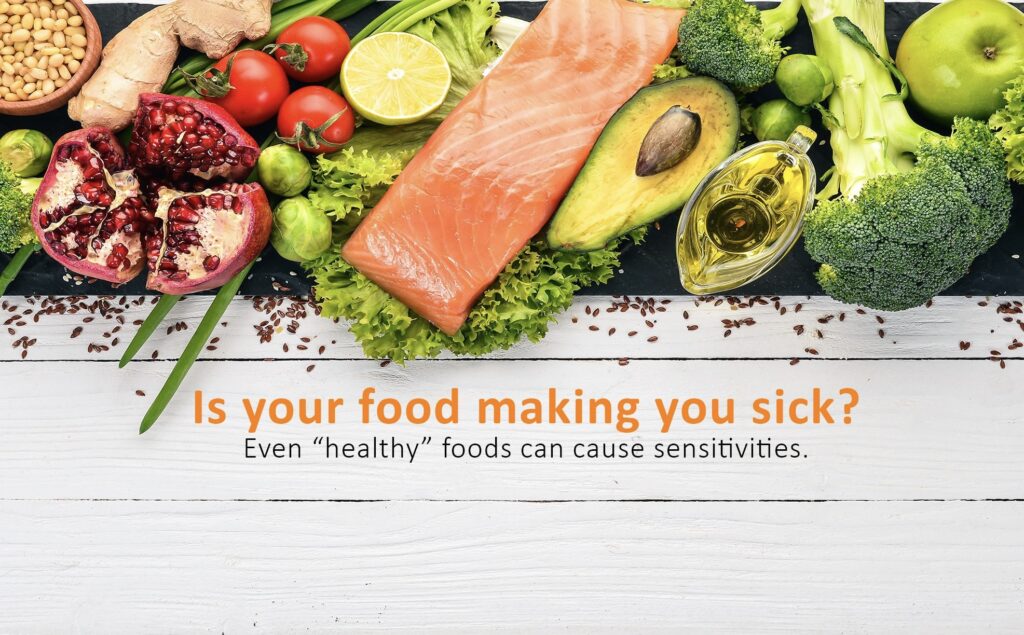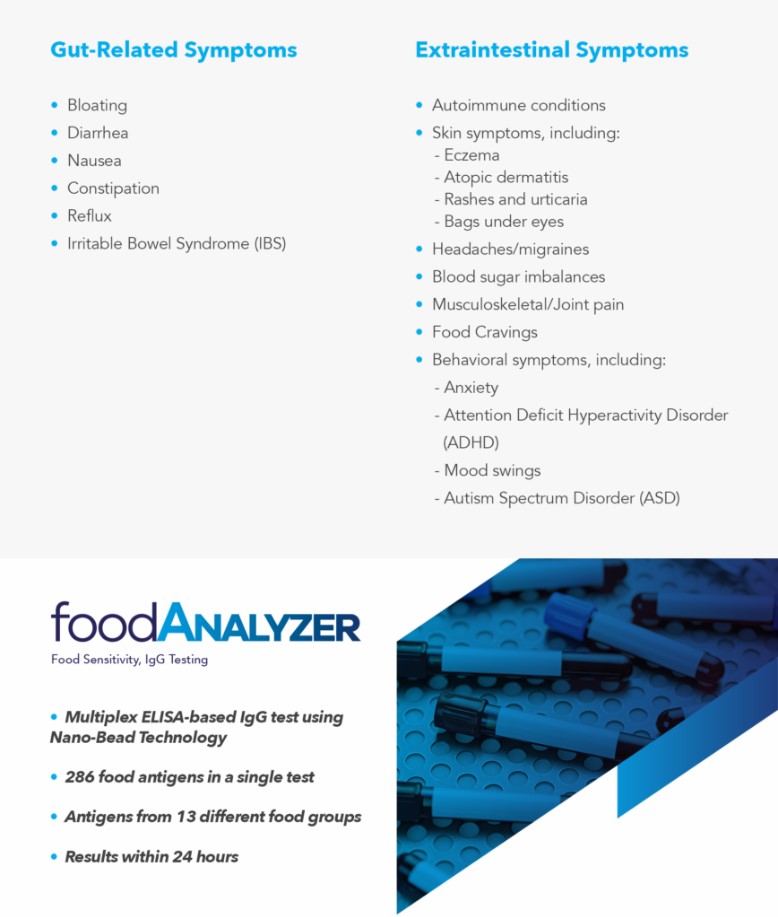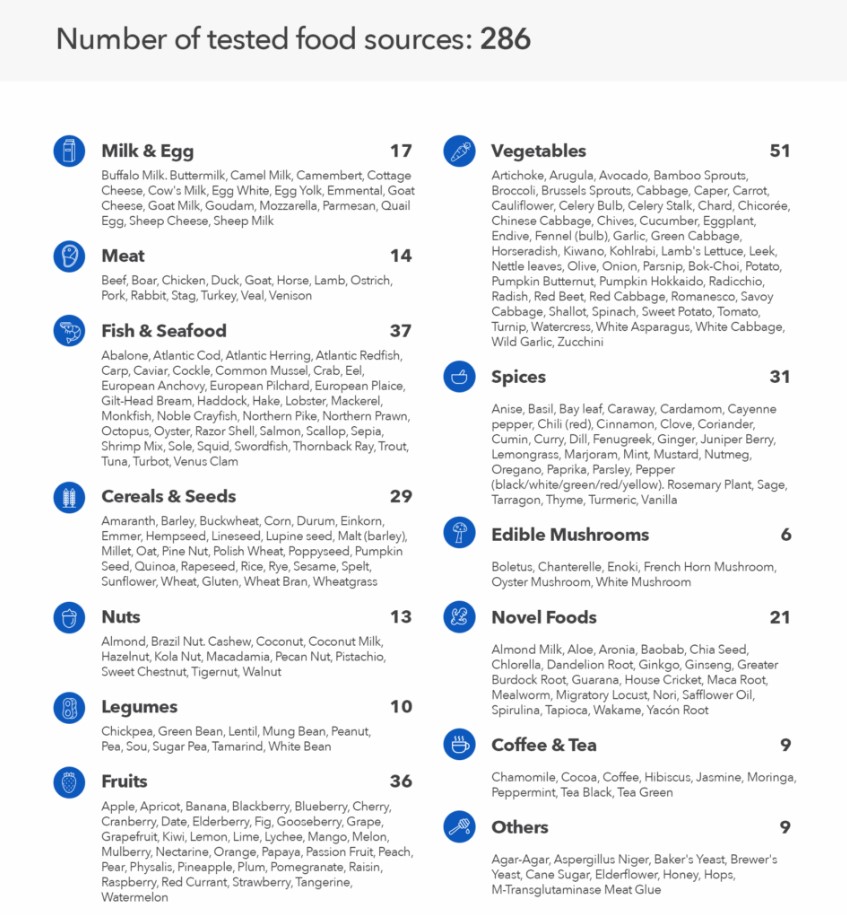Even Healthy Foods Can make You Sick
Removal of highly reactive foods from the diet is a non-invasive therapy that often mitigates a patient’s symptoms.
The clinical significance of IgG food testing was illustrated in an early article published by an otolaryngologist who reported that the majority of his patients had substantial health improvements after eliminating foods found positive by IgG food allergy testing. The study demonstrated a 71% success rate for all symptoms, achieving at least a 75% relief. Of particular interest was the group of patients with chronic, disabling symptoms, unresponsive to other intensive therapies.



What are Food Sensitivities?
Food sensitivity is where the digestive system has a difficult time breaking down a certain type of food leading to discomfort, but is not a life-threatening condition. Food sensitivity is a digestive response, not an immune response as is with food allergies. The inability to break down certain types of foods can lead to anxiety, fatigue, gas, diarrhea, and other unpleasant symptoms. These symptoms can occur within a few hours after eating with the main source of relief coming from limiting or eliminating problem foods.
Which Patients Can Benefit from Food Sensitivity Testing?
Digestive health is the key to total wellness. Understanding the IgG response from certain foods is a critical tool in shaping the diet to achieve complete gut health and overall wellness. While a food sensitivity is not a life threatening health risk, understanding your body’s sensitivities can improve your overall quality of life. Increase your awareness of what your body reacts to and make better food choices that will help alleviate symptoms you may not have realized were caused by foods.
Candidates for Testing
More than 45% of the population are affected by food sensitivities.
- Everyone can benefit from food sensitivity testing. Not everyone shows obvious symptoms; however, the testing can be used to implement a healthier lifestyle.
- Food sensitivities affect over 45% of the population, yet less than 5% of the population has a diagnosable IgE-mediated food allergy.
- Patients looking to improve body composition and lose weight.
- Patients with positive clinical indications, but a negative IgE test result.
- Patients who may be suffering from one or more symptoms.


Get Started Call Today!

About Affinity Med Spa & Wellness Center
Affinity Med Spa and Wellness Center is an award-winning, family-owned and operated business that has been serving the East Orlando community for over 20 years.
We offer safe, industry-leading wellness and aesthetic treatments performed by friendly, caring, and experienced licensed professionals.
Client Love

Financing Available

